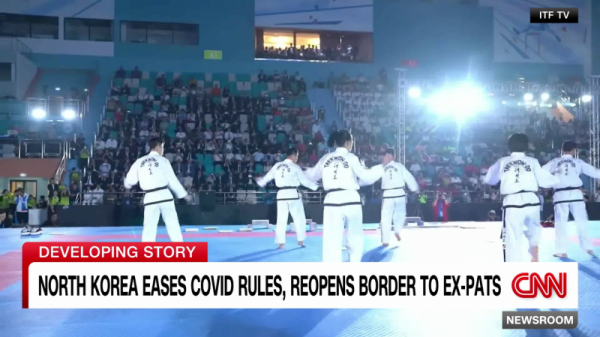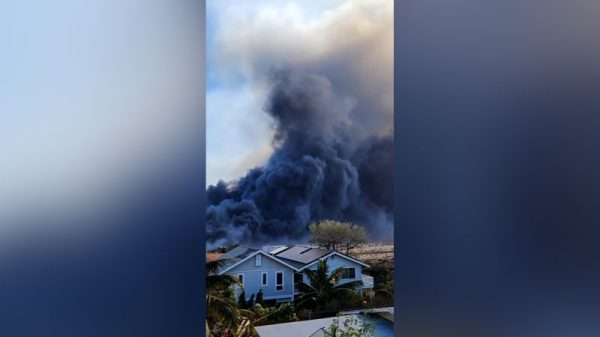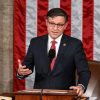NEW YORK — President Biden, in a high-profile speech Tuesday at the United Nations, reiterated his appeal to world leaders to do all they can to help Ukraine repel Russia’s invasion, an exhortation that comes amid signs of flagging support in the United States and abroad for further major aid packages to Kyiv.
Biden also told the U.N. General Assembly that the United States welcomes and even needs alliances with its partners. His declaration that “no nation can meet the challenges of today alone” created a pointed contrast with the “America First” message that Donald Trump, his predecessor and potential successor, delivered to the U.N. during his presidency.
But it was on Ukraine that Biden was the most forceful. He warned other nations that if they pull back their support, it could have ripple effects around the world.
“If we abandon the core principles of the [U.N. Charter] to appease an aggressor, can any member state in this body feel confident that they are protected?” the president said. “If we allow Ukraine to be carved up, is the independence of any nation secure? I’d respectfully suggest the answer is no. We must stand up to this naked aggression today and deter other would-be aggressors tomorrow.”
Though Ukraine was a major focus of the remarks, Biden also used the marquee platform to address a range of global issues, including climate change, artificial intelligence, infrastructure, human rights, nuclear proliferation and terrorism.
He touted his administration’s efforts to assist less-wealthy nations in Africa, Asia and Latin America — regions that are often referred to collectively as the Global South — as he called for more influence for underrepresented nations at organizations like the United Nations.
“We have to bring in more leadership and capability that exists everywhere, especially from regions that have not always been fully included,” Biden said. “We have to grapple with the challenges that are more connected and more complex. We have to make sure we’re delivering for people everywhere, not just somewhere, everywhere.”
Underlying much of Biden’s message was the growing rivalry between the United States and China for influence in the Global South. U.S. officials hoped to take advantage of the fact that Chinese leader Xi Jinping did not travel to New York for the gathering this week, nor did China’s top diplomat, Wang Yi.
There was little sign that countries in the Global South or elsewhere were shedding their wariness of embracing the coalition against Russia and its invasion of Ukraine. As the war grinds on a year and a half after it started, that coalition is showing signs of fatigue.
At a recent summit of the Group of 20 major world economies, members struggled to agree on a joint statement about Ukraine. In Congress, many Republicans are making it clear they are reluctant to approve more large aid packages.
In Ukraine itself, a long-awaited counteroffensive has made less progress than Kyiv hoped, potentially making it even harder to energize worldwide support for its efforts.
At the U.N., top diplomats underlined the challenges of making progress on Ukraine and other issues at a gathering that is so divided by rivalries and so short on cooperation.
“The world is becoming more and more multipolar, and less and less multilateral. It is a paradox,” European Union foreign policy chief Josep Borrell told reporters Monday.
But he said it is still important to try to win the broadest possible backing for Ukraine to isolate Russia and its allies. “The United Nations General Assembly is the most important platform to generate international momentum to advance peace efforts to support Ukraine,” Borrell said.
Biden tried to rally the support of neutral countries that have stayed on the sidelines of the war, calling Moscow’s “illegal war of conquest” a threat to international order. In his remarks, he found common cause with U.N. Secretary General António Guterres, who in a separate address to the world body Tuesday warned that the Kremlin’s invasion “unleashed a nexus of horror” that “has serious implications for us all.”
“Ignoring global treaties and conventions makes us all less safe,” Guterres said.
Biden and Guterres also came together on the need to regulate artificial intelligence, which experts say has empowered militaries to use drones and other weapons platforms to kill with greater lethality and autonomy.
“We need to be sure they’re used as tools of opportunity, not as weapons of oppression,” said Biden, saying the technology has “both enormous potential and enormous peril.”
Guterres proposed that world powers agree on a new governance framework on “lethal autonomous weapons systems that function without human control.”
One of the key leaders the United States is trying to persuade on Ukraine is Brazilian President Luiz Inácio Lula da Silva, a prominent advocate for the developing world. During his Tuesday address, Lula kept a more neutral position on the Ukraine conflict, saying more work needs to be done “to create space for negotiations.”
“No solution will be lasting if it is not based on dialogue,” he said.
The Biden administration has discouraged calls for a negotiated settlement of the conflict, saying they are premature and that Russia is not serious about diplomacy.
Russian President Vladimir Putin, who is facing an arrest warrant from the International Criminal Court over the forced transfer of children from Ukraine to Russia, is not attending the U.N. event.
Amid complaints from nations in the Global South that the war in Ukraine is overshadowing their struggles, Ukrainian President Volodymyr Zelensky sought in his General Assembly address to convince those wavering leaders that Ukraine’s struggle is also theirs.
“There are many conventions that restrict weapons, but there are no real restrictions on weaponization,” Zelensky told leaders, adding that Russia’s blocking of Ukraine’s Black Sea ports was contributing to a global food shortage and exacerbating hunger among some of the world’s most vulnerable populations.
He said that Russia was also weaponizing energy and artificial intelligence. And amid a rise in natural disasters driven by climate change, he said, Russia was making it harder to deal with climate crises by creating new human suffering.
“Extreme weather will still impact normal global life, and some evil state will also weaponize its outcomes,” Zelensky said. “A natural disaster in Moscow decided to launch a big war and killed tens of thousands of people. We have to stop it.”
Zelensky will also address the U.N. Security Council on Wednesday. But his challenge was on full display Tuesday as he spoke in front of a half-empty General Assembly hall, with many delegations apparently deciding that his speech – like those of many other leaders over the course of days of discussions – was skippable.
Later this week, Zelensky will travel to Washington to meet with Biden and members of Congress.
While Biden has the benefit of a high-level U.N. week without Putin or Xi, he is sharing the proverbial stage with Iranian President Ebrahim Raisi.
Raisi, who is holding meetings on the sidelines of the summit this week, harshly criticized the United States during a meeting with journalists Monday, saying its “meddling” in the Middle East has caused “seven decades of oppression” and “destruction.”
The Biden administration disputed Raisi’s comments Monday evening, saying recent U.S. efforts to facilitate ongoing peace talks between Yemen’s Houthi rebels — who are backed by Iran — and Saudi Arabia, and a potential normalization agreement between Israel and Saudi Arabia, demonstrate a determined U.S. effort to reduce tensions in the region.
Biden and his aides came to New York with a message that the United States is open to diplomacy, whether that means delicate prisoner swaps with Iran or smoothing relations between the Middle East’s geopolitical and sectarian rivals.
“Generally speaking, the region’s about as stable as it has been in many years,” said a senior U.S. administration official, who spoke on the condition of anonymity to discuss sensitive diplomatic moves. “I believe a lot of that is due to some pretty smart — often backroom — U.S. diplomacy.”
Similarly, Biden said Tuesday that he wanted to “responsibility manage” the competition with China.
“We will push back on aggression and intimidation and defend the rules of the road, from freedom of navigation to overflight to level the economic playing field, that it helps safeguard security and prosperity for decades,” he said. “But we also stand ready to work together with China on issues where progress hinges on our common efforts.”
On Monday night, Biden told a group of Democratic donors that he hoped to press upon world leaders the notion that America “is back.” He has often used that phrase to convey a U.S. return to global leadership following Trump, whose approach often involved disrupting or withdrawing from traditional alliances.
The president will attend four political fundraisers during his four-day stay in New York, as the 2024 campaign season heats up.
After his speech, Biden met with Guterres and hosted a meeting with leaders of five Central Asian countries. In the evening, Biden and first lady Jill Biden were to host a reception for world leaders at the Metropolitan Museum of Art.
On Wednesday, the president will hold a bilateral meeting with Lula, the Brazilian leader, and the two will then host an event with American and Brazilian workers. The labor event comes amid worker strikes across the United States.
Biden will also meet with Israeli Prime Minister Benjamin Netanyahu. It will be their first face-to-face encounter since Netanyahu won his election last fall and initiated changes to the country’s judicial system that have been widely criticized as anti-democratic and have been met with massive protests in Israel.
Relations between Biden and Netanyahu have often been frosty, and this week’s meeting comes in the absence of a more formal event for the Israeli leader at the White House.







































